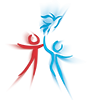Women's History Month Feature:
Malala Yousafzai
 Malala Yousafzai
Malala Yousafzai (image source: condenast.com)
Women’s History Month is an annual observance of significant figures and events in women’s history. Celebrated worldwide, Women’s History Month is March in the U.S., UK and Australia corresponding with International Women’s Day on March 8, and originates from the first International Women’s Day in 1911. On this occasion we honor those prominent women in history who made significant contributions to advance universal human rights.
With many people unaware of their rights, the question arises: who will make sure human rights are respected? In answer, we can draw inspiration from those who made a difference and helped create the human rights we have today.
While we celebrate the women who made history, here is a story of a young girl who is making history. Her courageous strides have placed her at the vanguard of a movement for women’s rights in education.
Malala Yousafzai’s story begins with an anonymous blog on the BBC Urdu website expressing her ideas about education and about life in the Swat District, a lush region in a high valley in the northwest of Pakistan that became the central point of conflict between Pakistani and Taliban forces at the end of 2008. With over 5.5 million children not in school, the second highest figure in the world and the highest number of illiterate adults in the world, after India and China, Pakistan faces an educational crisis.
Malala’s father, Ziauddin Yousafzai, a poet and educator, encouraged her to convey her ideas. From the age of 11, she wrote for BBC Urdu under the pen name “Gul Makai”: “Today we all know education is our basic right. Not just in the West; Islam too has given us this right. Islam says every girl and everybody should go to school. In the Quran it is written, God wants us to have knowledge.”
Word spread that Malala was the author of the BBC blog and she and her father began receiving threats from the Taliban. In spite of this, Malala continued to write. Remembering the events Malala commented, “I don’t know why, but hearing I was being targeted did not worry me.”
After New York Times reporter, Adam B. Ellick, featured Malala in a documentary, she gained international acclaim. She received Pakistan’s first National Youth Peace Prize and was nominated for the International Children’s Peace Prize. She is the youngest person nominated for a Nobel Peace Prize in 2013.
On October 9, 2012, when she was 15, Malala was shot in the head by a member of the Taliban on her way to school. Miraculously surviving the shooting, the United Nations proclaimed her birthday, July 12th, Malala Day, in honor of her courage and tenacity in fighting for human rights. She celebrated the occasion by delivering a speech to 500 youth leaders at the United Nations headquarters in New York demanding worldwide adherence to the right to education: “I am not against anyone, neither am I here to speak in terms of personal revenge against the Taliban or any other terrorist group. I am here to speak up for the right of education for every child.”
A petition in her name with the slogan “I am Malala” encouraged 1 million individuals to come together for the right to education. Moreover, she started The Malala Fund, a nonprofit organization with the goal of enabling the over 600 million young women around the world out of school to gain access to the right to education.
Malala adopts a peaceful approach in her pursuit of human rights, inspired by great leaders as Mahatma Gandhi: “Peace in every home, every street, every village, every country – this is my dream. Education for every boy and girl in the world. To sit down on a chair and read my books with all my friends at school is my right right. To see each and every human being with a smile of happiness is my wish. I am Malala.” Through her actions, Malala has become an icon and role model for youth everywhere in the movement for educational human rights for all.
Youth for Human Rights International is a nonprofit organization founded in 2001 to teach youth about human rights and inspire them to become advocates for tolerance and peace. Since its inception, it has grown into a global movement, including hundreds of groups, clubs and chapters around the world.
